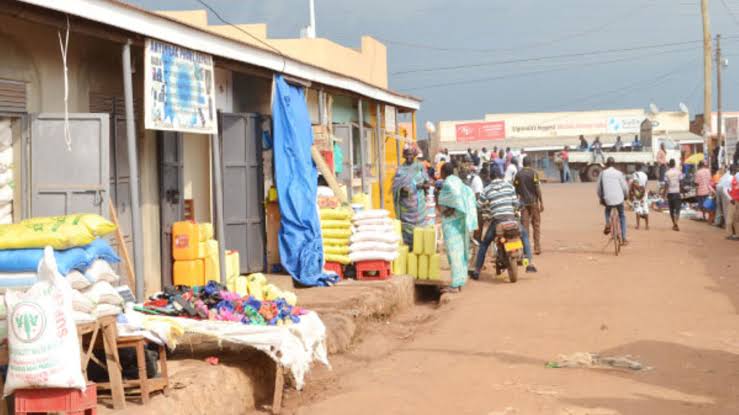In the heart of Uganda’s Kiryandongo District, where the Kampala-Gulu highway hums with trade and travel, lies Bweyale Town, a bustling hub overshadowed by the sprawling Kiryandongo Refugee Settlement. By July 2025, the settlement teemed with over 96,860 souls, mostly South Sudanese fleeing a relentless civil war, joined by a fresh wave of Sudanese escaping violence since January 2024. Bweyale, just a short motorcycle ride away, feels the weight of this influx, its streets and markets vibrating with opportunity but also trembling with insecurity. The story of Bweyale is one of resilience tested by fear, where the promise of coexistence frays under the strain of ethnic strife, resource scarcity, and crime spilling from the settlement’s edges.
Maan Ajah, a South Sudanese businesswoman, sets up her stall in Bweyale’s main market each dawn, her eyes scanning the crowd warily. She’s lived in Kiryandongo since 2014, but the hatred instilled in her as a child against the Nuer and Murle tribes lingers. “I don’t deal with them,” she mutters, recalling tales of cattle raids and wartime losses. Her prejudice isn’t unique. The settlement, home to over 50 ethnic groups, simmers with intertribal tensions rooted in South Sudan’s conflicts. In July 2025, a violent clash in Cluster L East saw over 100 Nuer youth attack Sudanese refugees with machetes and sticks, wounding 16, four critically. The chaos, reported by the Sudan Defenders Coalition, sent ripples into Bweyale, where locals and refugees mingle daily. Marketgoers grew cautious, fearing sudden flare-ups, while police, stretched thin, struggled to respond. The violence wasn’t new. Between 2013 and 2016, Kiryandongo recorded 300 conflict cases and over 50 deaths from ethnic disputes, a shadow that looms over Bweyale’s vibrant commerce. Chatiem Matiop, a video advocate for peace, knows this too well. He’s seen fights break out over old grudges, Dinka versus Nuer, Shuluk versus Moru spilling from the settlement’s dusty paths into Bweyale’s bars and shops. “People bring their wars here,” he sighs, filming a peace marathon meant to bridge divides. Yet, even these efforts falter when ethnic churches preach in separate tongues, and leaders like Mr. Aleu struggle to unite congregations under one language. The lack of social cohesion fuels mistrust, and Bweyale’s police, underfunded and understaffed, can’t keep up. A 2020 study noted that night patrols are near impossible without electricity in parts of the settlement, leaving Bweyale vulnerable to crime after dark. Crime is Bweyale’s growing shadow. The settlement’s food insecurity, worsened by aid cuts and a surge of 250 Sudanese arrivals daily, pushes desperate refugees into theft and vandalism. Juan Monica, a long-time resident, laments the shrinking food rations since 2023, when Sudanese newcomers strained resources. “The land we farm is too small now,” she says, pointing to plots subdivided for new arrivals. Some refugees, unemployed and hungry, slip into Bweyale at night, targeting shops or homes. Prostitution and substance abuse, born of economic despair, have crept into the town’s nightlife, alarming residents like Semei Karangwa, who once saw Bweyale as a beacon of opportunity. A 2021 report claimed the town’s security was stable despite its diversity, but by 2025, locals whisper about rising petty crime, blaming the settlement’s unlit alleys and unchecked movement. Resource competition stokes the fire. The settlement’s sanitation crisis, highlighted by NTV Uganda in June 2025, threatens Bweyale’s public health. A measles outbreak in 2023 hit refugees harder (49/100,000 vs. 11/100,000 for locals), clogging Bweyale’s Nyakadoti Health Centre III with patients. Long queues and medicine stockouts frustrate locals, who feel that refugees overburden their facilities. Water shortages, despite a 2018 piped system, spark disputes at shared boreholes, with ethnic groups clashing over access. “They get land, we get nothing,” grumbles Edward Byakagaba, Bweyale’s Local Council III Chairperson, echoing a 2025 study that found locals resentful of refugees owning prime properties. This tension simmers in Bweyale’s markets, where a single spark, a theft, a slur could ignite violence. Yet, there’s a flicker of hope. The Youth Peacemaker Network, backed by the Western Union Foundation, has slashed violent incidents from three per week to three per six months through radio shows and dialogues reaching 70,000 people annually. Cash transfers from GiveDirectly, providing $1,000 to 10,000 households, boosted local spending, invigorating Bweyale’s economy. Refugees like Rosette, now a shop owner, pour money into the town, building homes and businesses. The Lutheran World Federation’s 2024 water repairs and psychosocial support ease some strains, fostering goodwill. But these gains are fragile. Funding cuts, like those hitting Kakuma in Kenya, threaten programs, and the July 2025 attacks show peace is tenuous. Hussein Taiman, a Sudanese refugee leader, warns of “systematic targeting” without accountability, a fear that haunts Bweyale’s streets. As dusk falls, Bweyale’s markets glow with activity, but eyes dart nervously. Maan locks her stall, Chatiem films another plea for peace, and Monica prays for enough food tomorrow. The settlement’s insecurity, ethnic strife, crime, and resource wars cast a long shadow over Bweyale, a town caught between opportunity and fear. Without stronger security, equitable resources, and sustained peacebuilding, the story of Bweyale risks unravelling, its promise of coexistence fading into the night.
This post was created with our nice and easy submission form. Create your post!




